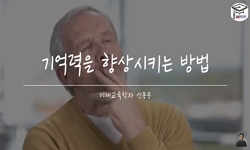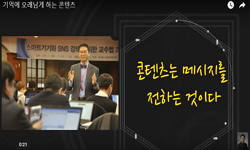This thesis has as an objective to interpret the poststructural conditions manifested in Ha Geun-chan’s novels via layers of the theory of human. If existing researches limited the interpretation of Ha Geun-chan’s novels within a simple framework ...
http://chineseinput.net/에서 pinyin(병음)방식으로 중국어를 변환할 수 있습니다.
변환된 중국어를 복사하여 사용하시면 됩니다.
- 中文 을 입력하시려면 zhongwen을 입력하시고 space를누르시면됩니다.
- 北京 을 입력하시려면 beijing을 입력하시고 space를 누르시면 됩니다.
하근찬 소설연구 : 포스트구조주의적 관점에서의 인간학 = A Study on Novels by Ha Geun-chan : A Theory of Humanity in Views of Poststructuralism
한글로보기https://www.riss.kr/link?id=T13963936
- 저자
-
발행사항
대전 : 배재대학교 일반대학원, 2016
-
학위논문사항
학위논문(석사) -- 배재대학교 일반대학원 , 한국어문학과 한국어문학 전공 , 2016. 2
-
발행연도
2016
-
작성언어
한국어
- 주제어
-
발행국(도시)
대전
-
형태사항
26 cm
-
일반주기명
지도교수: 정문권
- 소장기관
-
0
상세조회 -
0
다운로드
부가정보
다국어 초록 (Multilingual Abstract)
This thesis has as an objective to interpret the poststructural conditions manifested in Ha Geun-chan’s novels via layers of the theory of human. If existing researches limited the interpretation of Ha Geun-chan’s novels within a simple framework of postwar literature, this thesis expands the frame and observes the change of narrative principles revealed in Ha Geun-chan’s novels and studies consequently how main individuals react to the violence of great ideologies.
Essentially discourses of power suppress individuals and eliminate their experiences of violence. As the memories of violence become a blur in the network of “signifier-signified,” individuals are sacrificed and forgotten. In Ha Geun-chan’s novels, such conditions are composed in various angles. Ha Geun-chan was a prolific writer who produced a countless number of works over a long period of creativity. So, his works differed in the layers of meaning in chronological order, the early, middle and late period. This study seeks, within the change of the layers of meaning, the method of how individuals react to or resist discourses of power. To trace the changes allows one to understand Ha Geun-chan’s novels, but it also provides a sociological study on how one’s experiences of ideological violence, or the war in the Korean peninsula, affected individuals.
As the criteria to clarify the changes of individuals in Ha Geun-chan’s novels, this researcher chose theories by Korean literature researches as well as methodologies of poststructural philosophers represented by Gille Deleuze, Félix Guattari, Slavoj Zizek, and Mari Oka. Above-mentioned views are suggested as alternatives to structural discourses that play a role of maintaining and mending the existing power, and the continuous accomplishment of the alternatives can be an accomplishment or aspiration found in the trend of poststructuralism.
Such movements of poststructuralism are reenacted as they are in the interior world of Ha Geun-chan’s novels. To interpret such conditions within the system of poststructural discourses will be a significant project in interpreting the originality and uniqueness of the narrative development style of Ha Geun-chan’s novels. This way of interpretation can provide a chance to remove a kind of faulty skin off the Ha Geun-chan novels known as the postwar literature. The process can expand the basis of humanism by reflecting that poststructural narrations intended by Ha Geun-chan’s novels are revealed through individuals’ problems, and in the end the intention of Ha Geun-chan’s novels is named as the humanism of poststructuralism. However, that the denotation of the word humanism is too limited and at the same time too broad to be the subject of study is noted as a problem, therefore humanism is juxtaposed with a theory of humanity. The word is juxtaposed as a theory of humanity refers to humanism as a way of individuals reacting and resisting the discourses of the exiting power.
As a result, conclusions are as follows. First, the principal agent of Ha Geun-chan’s novels experiences a consistent conflict against the subject of power. Second, the conflict is materialized as one-way violence of the subject of power. Third, the resolution of the conflict structuralizes multi-layered networks of meaning as it interconnects with the time of the novel’s creation. Fourth, the structure of multi-layered networks of meaning is formed with the methodology of poststructuralism.
Based on the above results, it is known that the narrative subjects of Ha Geun-chn’s novels reveal their wills to fight against the subject of power and its enormous violence. The manifestation of such fighting wills connotes a center of humanism inherent in deep concerns about humanity. Conclusively, Ha Geun-chan’s novels can become a new genre of a theory of humanity that can substitute humanism.
Keywords: Ha Geun-chan, a theory of humanity, humanism, poststructuralism, deterritorialization, principle agent, discourse of power, memories
국문 초록 (Abstract)
이 논문의 연구 목적은 하근찬 소설에서 드러나고 있는 포스트구조주의적 양상을 인간학의 층위에서 읽어내는데 있다. 기존의 연구들이 하근찬 소설을 전후문학이라는 단일한 프레임으로 ...
이 논문의 연구 목적은 하근찬 소설에서 드러나고 있는 포스트구조주의적 양상을 인간학의 층위에서 읽어내는데 있다. 기존의 연구들이 하근찬 소설을 전후문학이라는 단일한 프레임으로 읽어내는데 그쳤다면, 이 논문은 그 프레임을 확장해 하근찬 소설에서 드러나는 서사 주체의 변모양상을 주시하고, 그 결과 개인 주체가 거대한 이데올로기의 폭력에 어떤 방식으로 대응하는 지를 고찰하였다. 권력담론은 본질적으로 개인 주체를 억압하고 개인 주체가 겪은 폭력의 경험들을 소거시킨다. 폭력의 기억은 권력담론의 ‘기표-기의’ 관계망 안에서 희미해지고, 개인 주체는 희생당한 채 잊히고야 마는 것이다.
하근찬 소설에서는 위와 같은 양상이 다각적으로 구성된다. 하근찬은 오랜 창작기간에 걸쳐 수많은 작품을 집필한 작가이다. 때문에 그의 작품들은 초기-중기-후기의 연대기적 순서에 따라 그 의미층위를 달리한다. 그리고 그 의미층위의 변화 안에서 개인 주체가 권력담론에 대응하거나 대항하는 방식이 다각적으로 모색된다. 이러한 변화의 양상을 추적하는 것은 하근찬 소설을 이해하는 것은 물론이고 전쟁이라는 이데올로기적 폭력의 경험이 당대 한반도의 개인 주체에 어떠한 영향을 미쳤는지에 대한 사회학적인 고찰도 가능해질 것으로 보인다.
하근찬 소설에서 드러나는 개인 주체의 변모양상을 밝히기 위한 잣대로 국내의 문학연구자들의 이론은 물론 질 들뢰즈와 펠릭스 가타리, 슬라보예 지젝, 오카 마리로 대표되는 포스트구조주의 철학자들의 연구방법론을 채택했다. 위의 관점들은 기존의 권력을 유지 · 보수하는 역할을 수행하는 구조주의적 담론에 대한 대안으로서 제시되었으며, 대안의 지속적인 성취는 포스트구조주의적 사조가 가진 성취이자 지향점이라 할 수 있다.
이러한 포스트구조주의의 움직임은 하근찬 소설 세계 내부에 그대로 재현되고 있다. 이러한 양상을 포스트구조주의적 담론의 체계 아래에서 읽어내는 것은 하근찬 소설의 서사 전개 방식이 가진 독자성과 고유성을 읽어내는데 유의미한 작업이 될 것이다. 또한 이러한 해석의 방법은 하근찬의 문학이 가지는 전후담론이라는 일종의 허물을 벗겨내는 계기도 될 수 있을 것이다.
또한 이 과정에서 하근찬 소설이 지향하는 포스트구조주의적 방식의 서사가 개인 주체의 문제와 결부되어 나타난다는 점에 비추어 휴머니즘적 기조를 확보하여, 결국 하근찬 소설이 지향하는 바를 포스트구조주의 휴머니즘이라고 명명했다. 하지만 휴머니즘이라는 단어가 가진 외연이 좁고, 그 내연이 지나치게 넓어 학문의 대상으로 삼기에는 범박하다는 문제점을 인식하고 휴머니즘을 인간학이라는 단어로 병치하여 사용했다. 인간학은 개인 주체가 기존의 권력담론에 대응·대항하는 방법으로서의 휴머니즘을 가리킨다는 점에서 용어를 병치한 것이다.
그 결과 다음과 같은 결론을 도출할 수 있었다. 첫째, 하근찬 소설의 주체는 권력주체와 일정한 갈등을 경험하고 있다. 둘째, 이 갈등의 양상은 권력주체의 일방적인 폭력의 양상으로 형상화되고 있다. 셋째, 그리고 이 갈등구조의 해소는 하근찬 소설의 창작시기와 맞물려 다층적인 의미망을 구조화하고 있다. 넷째, 다층적인 의미망의 구조는 포스트구조주의적 방법론으로 이루어지고 있다.
위와 같은 결론을 바탕으로 하근찬 소설에서 드러나는 서사주체는 당대 한반도의 주체와 맞물려, 거대한 폭력의 양상을 드러내는 권력주체와의 투쟁의지를 보이고 있음을 알게 되었다. 이러한 투쟁의지의 발로는 인간학적 구심점을 내포하고 있으며 인간주체에 대한 고민이 내재되어 있다. 이러한 연구를 통해 하근찬 소설이 휴머니즘을 대체할 수 있는 새로운 종류의 인간학이 될 수 있다는 결론을 도출했다.
목차 (Table of Contents)
- 국문초록
- 목차
- Ⅰ. 서론 1
- 1. 연구목적 1
- 2. 연구사검토 5
- 국문초록
- 목차
- Ⅰ. 서론 1
- 1. 연구목적 1
- 2. 연구사검토 5
- 3. 연구방법 9
- Ⅱ. 전쟁의 기억과 상처 입은 인간 14
- 1. ‘만도’와 ‘진수’의 잃어버린 신체에 드러나는 영토화의 양상 - 「수난이대」 14
- 2. ‘동길’이 겪어야 하는 지속성의 사건 - 「흰종이수염」 23
- Ⅲ. 전쟁의 폭력과 실존적 인간 29
- 1. 임시적 양상으로 치닫는 탈주화의 첨점 - 「나룻배이야기」, 「홍소」 29
- 2. 잔학성을 관통하는 리좀적 사유 - 「산울림」 37
- Ⅳ. 이데올로기를 횡단하는 윤리적 인간 44
- 1. ‘붉은 언덕’으로 재현되는 기억 - 「붉은 언덕」 44
- 2. 지속적인 재영토화의 위협과 탈영토화 - 「노은사」 53
- Ⅴ. 결론 60
- 참고문헌 64
- Abstract 66












